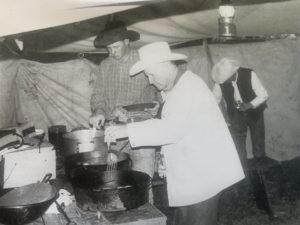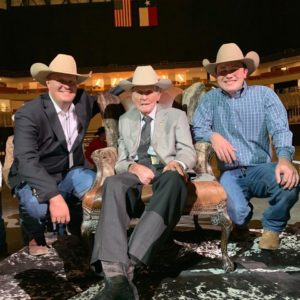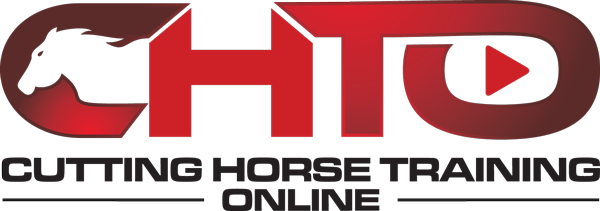
From bits and saddles, to working a cutting horse in a round pen, to helping start the NCHA and hosting the first futurity, Buster Welch made cutting what it is today.
“Anybody that has [ridden] a cutting horse has been influenced by him whether they know it or not,” $9.1 million earner Austin Shepard said of his good friend Welch, who passed away June 12th, 2022 at his Abilene home at 94 years old.
Not only was Welch an incredible horseman and cow man, he had a way of making people believe the best of themselves even when it seemed impossible.
“He could give you three days of work to do in a day but he is the best at communicating with people. He would give you the list of things to do that was more than you could handle but he made you believe you could handle it,” top two year old trainer Wes Ashlock said.
That ability translated over to the horses Welch trained as well.
Ashlock remembered one horse he was struggling to get hooked to a cow. He asked Welch to work her. Ashlock said in about five moves he had accomplished so much with the horse by not doing very much.
“He understood a horse, he respected a horse and he knew how to make a horse think… He could do with a horse what he could do with people. He could make them work really hard without trying very hard. There was an understanding between the two. He was so good at handling a cow. He figured out before a lot of guys did that it’s a lot easier to teach a horse when they’re interacting with a cow,” Shepard said.
The grandfather of cutting was born May 23, 1928 and given the name Faye Owen Welch. Throughout his life Welch won many awards, holding a record five NCHA Futurity championships and received a number of accolades such as being inducted into the NCHA Hall of Fame, Texas Cowboy Hall of Fame, and the American Quarter Horse Association Hall of Fame, to name a few.
Shepard got to know Welch through his dad, Sam Shepard. The first futurity finals Sam ever attended was in 1977, the year Welch won it on Little Peppy. Sam fell in love with the way Welch did things and introduced himself. Welch invited Sam to work horses with him. The pair hit it off and got to be close friends sharing a love of reading and history. The last few years that Welch showed, Sam was in his corner.
Shepard reflected on Welch’s willingness to help his father Sam Shepard in 1977 when he was a “nobody.” He was always generous with his knowledge and help, Shepard said.
Ashlock started training cutting horses under his father-in-law, Tom Merryman who worked for Buster Welch for four years. Ashlock went to work for Josh King who was married to Welch’s granddaughter, Amy Welch. By working for King, Ashlock was able to be around Welch more Ashlock got the opportunity to help Welch brand cattle and was offered a ranching job. Ashlock accepted as long as he could learn about working horses.
“I’ve never wanted to work harder for someone in my whole life… He had a great work out program,” Ashlock said humorously, who remembered losing 30 pounds via Welch’s work ethic.
Welch only had a middle school education but he was very well spoken and well educated thanks to his love of reading. “He wanted to tell you what he thought but he didn’t want to insult your intelligence so he gave it to you in a different way…,” Shepard said.
Shepard recounted when Welch diplomatically told him to make sure the horse was loped enough by saying, “Just remember when you’re loping that horse, the last five miles are most important.”
“It always made me laugh because most people aren’t going to lope a mile let alone five miles,” Shepard said.
Ashlock highlighted a big philosophy of Welch’s, “make the right thing easy and the wrong thing hard.”
This is one of many often repeated phrases of Welch’s in the industry. There is even a book called Buster Says by Tommy Houston. Ashlock said he is fairly sure his father in law made contributions to that book because of the notes Merryman took when he was around Welch.
One of Ashlock’s favorite quotes by Welch is, “Know when to ride up, when to pull up and when to shut up.”
“Buster could tell you something like that and never insult you,” Ashlock said.
Both trainers emphasized how much Buster solidified their understanding of the relationship between the cow and the horse.
“Any horse that wins is reacting to a cow. We’re helping them along the way… That horse has really got to be hooked… They look a lot better doing it when they have expression… There has to be that interaction between the cow and the horse and Buster loved that,” Shepard said.
Ashlock compares trainer Lloyd Cox to Welch. “Lloyd can do so little to a horse and get a great result. Buster was the same way.”
“The best horse training line that I’ve ever heard [was one of Welch’s]”, Shepard said.

“When you correct a horse, try to time it so well that they think the cow did it to them,” Shepard quoted.
Shepard recalls Welch riding Bet Hesa Cat in the 2011 Champions Cup as the time Welch really became his mentor.
“I grew up having the opportunity to be around Buster working… He had such an impression on my dad, I can’t tell you how many times my dad said ‘well, Buster said this’ and ‘Buster said that,’” Shepard said.
“He really taught my dad how to work a cow and [my dad] taught me. Buster always threw out little tidbits that made a lot of sense,” Shepard said.
“He has made it better for a lot of people. You go around the arena at a major event and there’s a dozen guys or more that worked for him or worked for somebody that worked for him…,” Shepard said.
Shepard said Welch never intended to be the father of cutting and he felt like it was bragging when people talked about how much he won or what he accomplished.
Welch rode in the first Futurity which was pretty rough around the edges and he took what he learned from working on the range to training a contest horse in the arena.
“All the things he did to convert the sport into a sport instead of just a job, he was so willing to share. His willingness to pass that onto the next generation was so good. And that’s what I want to be able to do. And I’ve been able to through my kids,” Shepard said.
“…Anytime you sit in a flat seated saddle or you work a horse in a round pen or work a horse in a Buster Welch bridle, you don’t think about it but that’s stuff he made popular in our business,” Shepard said.
Shepard said Welch came up with the idea of working in a round pen by thinking about how history repeats itself.
“He got thinking and said not only is life a circle but a roundup is a circle. You put those cows out in the open range and if a cow takes off and goes around the herd. And you go around the herd until you get it separated and put it where it needs to be put. And he thought, why can’t we do that in an arena,” Shepard said.
“I would say he contributed to the modern cutting horse more than anybody probably ever will,” Shepard said.
Ashlock agreed, “If you had to point your finger at one person, Buster did a lot for our sport.”
“He was definitely one of the most unique people I’ve ever met,” Shepard said.
“To me he is the last of that group and he is not only the last but he is the best. I would say there is nobody left that worked cutting horses in the roundup in the 50s and 60s. The fact that he was able to convert what he learned [from the range] and share with so many of us, it’s why he was remembered so well,” Shepard said.
By Sophia Skeith
Brought to you by PulseVet

